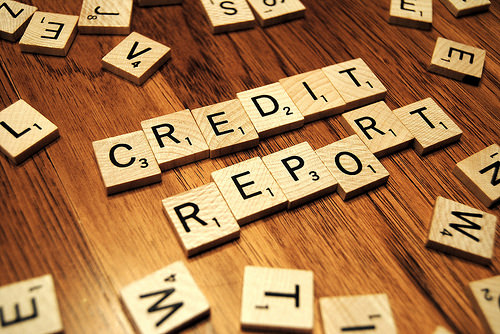
by Adam | Feb 6, 2015 | Uncategorized
There are many places where you can get your credit score and credit report for free. Here’s a breakdown of the best. The first step to improving your credit score is to know what your credit score is in the first place. Each of the three credit bureaus is required by law to give you one free credit report per year, but they don’t have to give you your actual score for free. Often you will be charged $15 or more for access to your score, but there are many websites and companies out there who will promise to give you your credit score for free (usually as part of a free trial). To help you decide the best way to access your credit score and credit reports, here are 4 of the top companies offering free scores and reports: Annual Credit Report .com AnnualCreditReport.com is the official website authorized by the federal government where you can get your free annual credit reports. However, you can only get one free credit report per credit bureau, per year, and it doesn’t include your actual credit score. Thankfully, there are other ways to access your credit score for free. Credit.com If all you are looking for is your credit score, then you’ll get it and a little more for free at Credit.com. You’ll get your Experian score along with some free score analysis. Additionally, you won’t have to provide any credit card information and you won’t be signing up for a free trial period (so you don’t have to worry about getting automatically charged). Credit.com offers several paid products and services, including pre-paid credit cards and credit monitoring....

by Adam | Jan 30, 2015 | Credit Repair
You’ve probably heard of credit repair scams: companies who promise dramatic results but want you to pay all the money up front, or who say they can remove legitimate items from your credit report. But what is it like to hire a credit repair company that actually has your best interests at heart? Not all credit repair companies are scams, and there are situations when hiring a credit repair firm can yield great results well worth the cost. Here’s what you can expect from a legitimate credit repair company. They Will Go Over Your Credit Report With You in Detail A trustworthy credit repair company wants to help you improve your credit situation, but they won’t sugar coat anything. The first order of business is pulling all of your credit reports and going over them with a fine-toothed comb. Your credit repair company should be upfront about items they can potentially fix in the short term, and which items they won’t have any control over. In addition to this, your credit repair company should give you the tools and advice you need to raise your credit score in the long term. They Identify and Dispute Errors on Your Credit Report An experienced credit repair company will have been helping people improve their credit for a long time. They know the ins-and-outs of credit laws and regulations, using their expertise to identify and dispute legitimate errors on your credit report. Over 40 million Americans have errors on their credit reports, and so there is a good chance that your report isn’t squeaky clean. However, a legitimate credit repair company will...

by Adam | Jan 23, 2015 | Credit Repair
Your credit report provides a detailed history of your credit usage. It’s unfortunate, but even one missed payment can bring your score down significantly. However, the negative items on your score don’t hang around forever. Let’s break down exactly how long you can expect to wait before your credit report is washed of those negatives. How Long Do Negatives Stay on Your Credit Report? 7 Is the Magic Number Most negative items will be reported on your credit report for 7 years. This includes: Missed Payments Foreclosures Collections Public records Bankruptcies for Chapter 10 If seven years sounds like a long time, you’ll probably be relieved to learn that the effect of these negative items decrease with time. This means that the older a negative item is, the less impact it will have on your credit score. Negative Items that Hang Around Longer Than 7 Years The main exception to the 7-year rule is Chapter 7 Bankruptcy. In this case, the bankruptcy will remain on your credit report for 10 years. An unpaid tax lien is considered the most serious, and may remain on your credit report indefinitely. Once it’s paid off, then it remains on your report for another 7 years. The Good News While negatives can seriously hurt your credit score, you may be pleased to learn that positive information (like an account paid off as agreed) will remain on your credit for up to 10 years, according to Equifax. Inquiries, which have a relatively small impact on your credit score (and some types of inquiries have no impact on your score), will stick around for 1 to 2 years. To learn...

by Adam | Jan 16, 2015 | Credit Repair
Sometimes we simply forget about a payment, or get behind on a loan. Other times a credit report error (or worse, a case of identity theft) can lead you on a wild goose chase just looking for a simple address or phone number. Life can get messy, and creditors aren’t always the easiest to contact when you need to. When it comes to tracking down your creditors, it’s often easier said than done. It’s not uncommon to not know the exact company name of a creditor, let alone their address or phone number. Things can get even more complicated when a creditor decides to hire a collection agency, which may be harder to identify and contact. If you need to write a credit dispute letter, or if you simply need to contact a creditor to verify the amount of money you owe, then you’re going to need a phone number or address. Here are the best places to look for this information: Check Your Credit Report The first place you should look to find creditors is your credit report. By law you are allowed one free credit report per year, which you can access at AnnualCreditReport.com. To find contact info for your creditors, look in the account history portion of your credit report. Here you will find info (address, phone number, and abbreviated account number) of all your accounts from the last 10 years, whether they’re open or closed. If an account has gone to collections, it will show the contact info for the collections company. Other Places to Look If the contact info you find on the credit report proves unreliable, there...

by Adam | Jan 9, 2015 | Credit Repair
Unless you’re brand new to credit, you probably know the basic things that can negatively affect your credit score: missed payments, credit report errors, maxed-out credit cards, bankruptcy, etc. All these factors are pretty serious, and may require some outside help in the case of credit repair errors. However, there are a few lesser-known factors you should know about that can also lower your score. Missed Rent Payments If you thought your rent payments were free from the credit bureaus, think again. Missed rent payments are routinely reported to the credit bureaus, resulting in a lower credit score. Thankfully, with the help of companies like RentBureau, ClearNow, and RentTrack, positive rent histories can actually help raise your credit score. So if you’re looking to improve your score, maintaining a good rental history can give you a good boost. Missing Accounts If you have positive accounts that are missing from your credit report, then you’re missing out on their potential to improve your score. Fixing this problem is fairly simple, just follow these steps: Get a copy of your credit report Make a list of any accounts that you make monthly payments on (including things like cable, internet, utilities, etc.) See if any are missing from your credit report (which is likely) Contact the companies where you keep the missing accounts and ask them if they will report your positive history to the credit bureaus You may be surprised that many of these companies will be more than willing to help you out. The extra positive credit history these accounts provide are sure to be a boon to your credit score. Paying on...







Recent Comments